Chess Olympiad 2022: Medal rush expected for India amid home crowd cheers
- Published
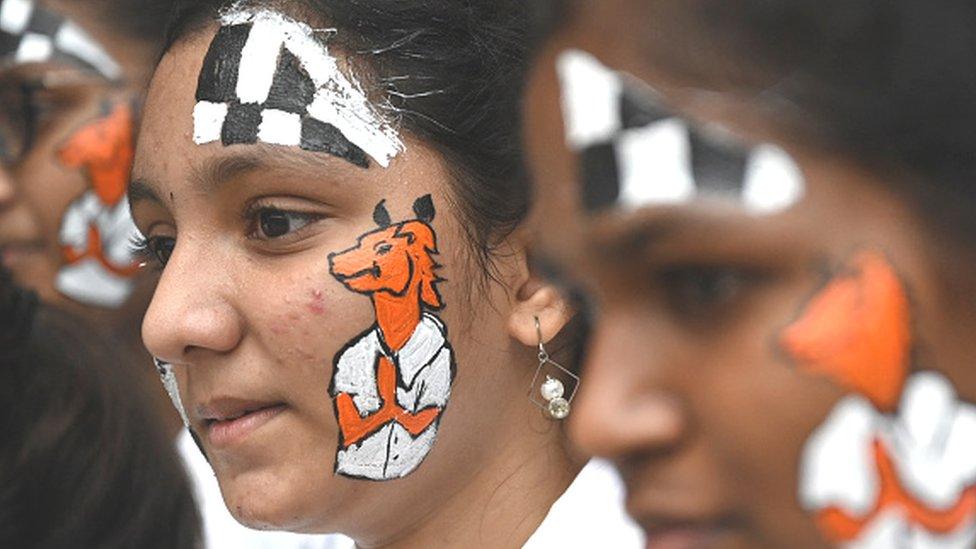
This edition's mascot is Thambi, a knight clad in veshti-sattai (dhoti-shirt)
The last time chess made national headlines, the year was 2013. Nearly a decade since, marquee chess returns in the form of an Olympiad that will run between 28 July-10 August - with delegates from over 180 countries descending in Mamallapuram, just outside Chennai city in the southern Indian state of Tamil Nadu.
India has won a medal only once in the biennial team competition - a bronze in 2014. Then seeded 19th, they were surprise podium finishers.
This time, India goes in as serious contenders - seeded second, right behind the US - a testament to the country's growing pool of strong, young grandmasters.
The Indian teams are mentored by five-time world champion Viswanathan Anand, led by a bunch of successful coaches and comprising some of the world's most exciting talent.
They will find themselves at the front and centre of attention at home.
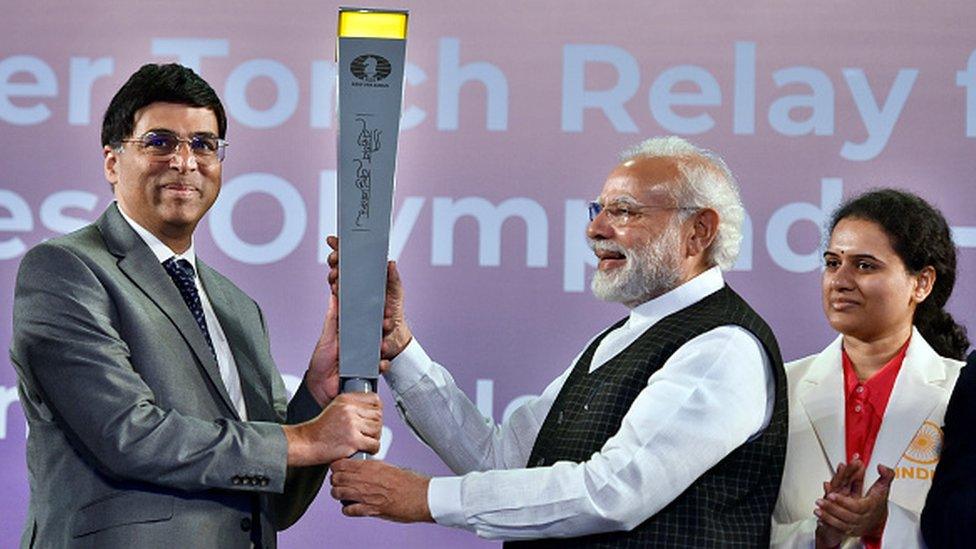
The Indian teams are mentored by five-time world champion Viswanathan Anand
A total of 30 Indian players across six teams (three each in the Open and the women sections) will represent the country at the event.
They've been put together in team training sessions over the past few weeks. Some have been away, playing tournaments, and are still fighting jet lag. The euphoria and pressure of a major home tournament is perhaps yet to kick in.
The first Open team carries a steady line-up in Pentala Harikrishna, Vidit Gujrathi, K Sasikiran, SL Narayanan and Arjun Erigaisi, but it's the "B" team that threads together a more interesting bunch.

The rules
No team plays the same opponent more than once, and the difference of match points of two teams paired should be 0, or as small as possible.
The "A" teams usually comprise the highest-rated players of a country while the "B" team carries the second-best bunch of names.
Matches are scored by points - two for a win and one for a draw, and no points in case of a loss.
The competition is divided into two sections - Open and women. Open is open to players from both genders to encourage competition.

Seeded 11th, it's stacked with India's brightest teen grandmasters - R Praggnanandhaa, D Gukesh, Nihal Sarin, Raunak Sadhwani and the 2014 medal edition warhorse, B Adhiban.
"It's not often that we have a really strong "B" team that could very well win us a medal," says Srinath Narayanan, coach of the second-seeded Indian side.
"If we assume there aren't going to be any last-minute health scares, we're in with an excellent chance," he says. "The full extent of expectations is yet to hit the players. It will only be towards the finish that pressure will set in."
Opening and closing ceremonies have a day each to themselves and matches will run from 29 July-9 August. The matches will be played over 11 rounds with a rest day in between and the teams will be made up of four players each and there will one in reserve.
The Indian women's team, featuring two of its strongest players - Koneru Humpy and a heavily-pregnant Harika Dronavalli - is seeded first and is expected to chase a podium finish. It also includes Tania Sachdev, R Vaishali and Bhakti Kulkarni.
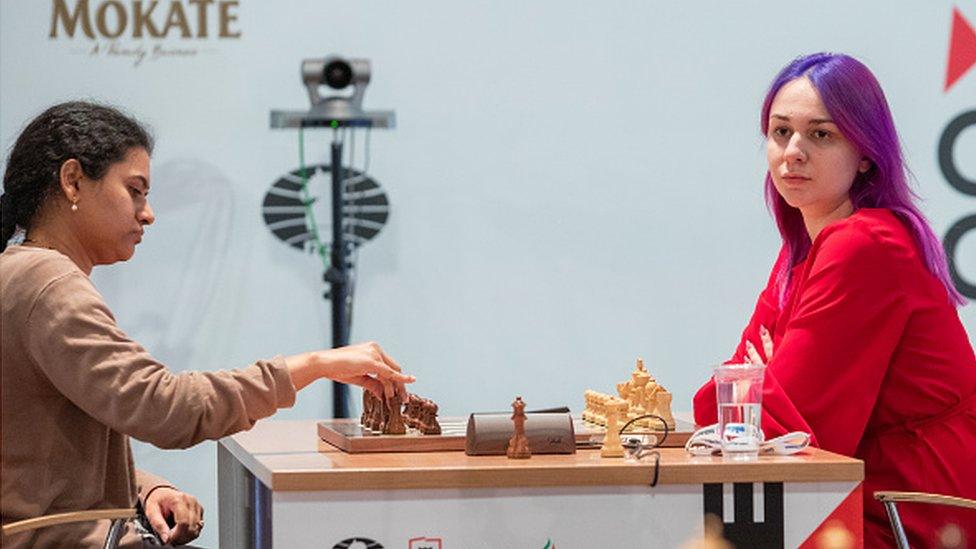
Koneru Humpy is among the top players on the Indian women's team
India finished among the medals in the first two editions of the Online Olympiad which was played with faster time controls over the past two pandemic-marred years. It can't, however, be compared to the classical chess Olympiad that takes place over the board every two years and will soon be underway in Chennai.
Typically, a host nation has a couple of years to prepare for an event of such magnitude. India, stepping in as last-minute hosts in the wake of the Russia-Ukraine war, has had all of four months.
The Tamil Nadu state government was prompt with its $10m (£8.3m) surety bid, and the All India Chess Federation (AICF) has been pulling all-nighters to host over 1,700 players for the 10-day event.
To test run the venue and its electronic chess boards, an open tournament was played on Sunday with around 1,400 domestic participants.
Teams from around the world have been trickling into the southern Indian metropolis to this edition's mascot Thambi (little brother in Tamil) - a ubiquitous veshti-sattai (dhoti-shirt) clad knight - greeting them at the airport and holding their gaze from billboards
Powerhouses Russia and China will be sitting this Olympiad out but almost all other top nations are arriving with their best rosters.
Among them is world number one, Magnus Carlsen of Norway. He's coming fresh off his massive announcement of walking away from next year's World Championship after five consecutive titles.
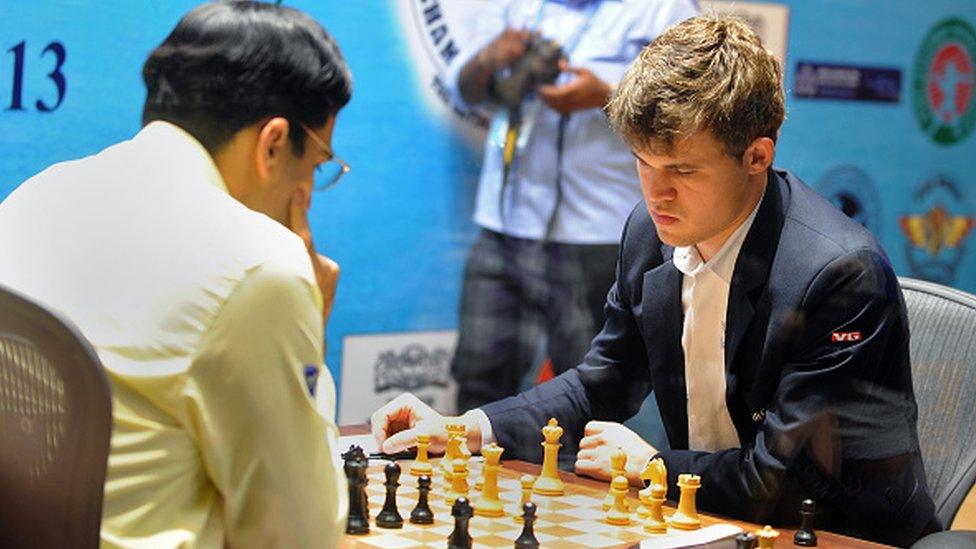
The 2013 match between Anand and Carlsen stirred the imagination of a generation of young Indian chess players
Incidentally, for Carlsen, Chennai was where it began - the venue of his first World Championship win against defending champion Anand, in 2013.
It was also the match that stirred the imagination of a generation of young Indian chess players. Some of the country's most promising grandmasters today were then seven or eight-year-old boys who hung out wide-eyed at the five-star hotel venue of the match.
The lobby of the Hyatt Regency hotel during that match wore the look of a chess fair, with boards spread out over floors and laps and kids hunched over them or busy taking a crack at puzzles.
Among them were Praggnanandhaa and Nihal. The latter won the national under-nine championship that took place in Chennai around the same time. The impact of being present in the vicinity of a major competition at an impressionable age, witnessing a 20-something Carlsen take over as chess' new world champion, may have run deep.
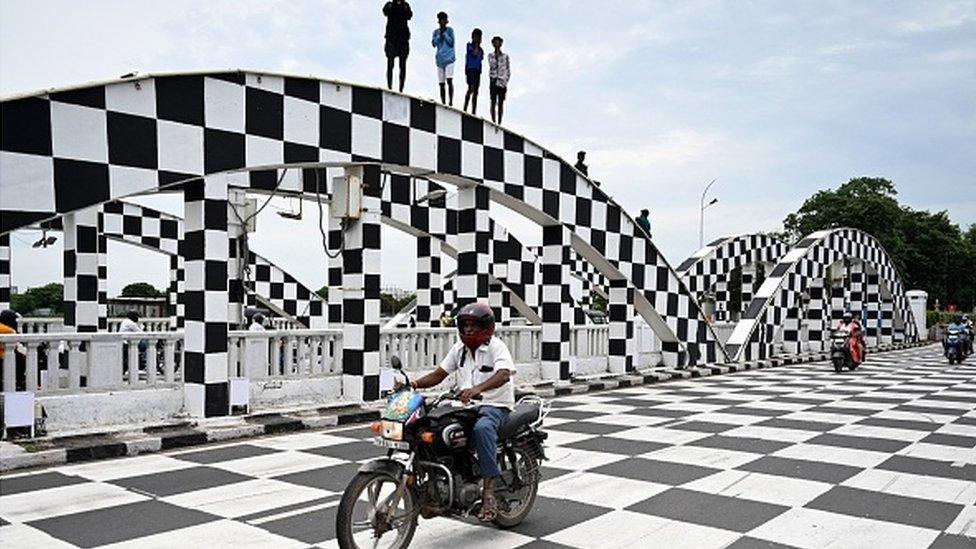
Chennai's iconic Napier bridge now wears the chequered look of a chess board
For Grandmaster Srinath, it was the 1995 World Championship match between Garry Kasparov and Anand that proved to be life altering. "My father watched that match on TV and fell in love with chess. It was when he decided that he wanted me to play the sport," he says. "I was one year old then."
For this Olympiad, held in India for the first time, organisers have been running a publicity blitzkrieg. One of Chennai's most iconic structures, the Napier bridge, now wears the chequered look of a chess board. Thambi can be spotted on milk packets and social media is awash with the event's hashtags.

The Olympiad could draw in a new generation of young sports fans
Since the pandemic struck, chess has transformed into a sport that commands a massive online following across YouTube and Twitch streams. The manner of story-telling has branched out lately, turning more conversational and less uptight to draw in new flocks of followers. This Olympiad stands to reap its dividends.
Nine years since India hosted the World Championship, its effects now wearing thin, a refresher of a major event is timely.
For the home team, this campaign could well end in a historic finish. Regardless, a generation of young casual Indian sports fans bred on cricket and European football might suddenly find chess ambushing their social media feeds over the next week and a half.
It might just be a good enough reason for them to get to know their country's best chess players by name.

You may also be interested in:
People pay to watch me play chess

Related topics
- Published25 February 2022
- Published25 July 2021
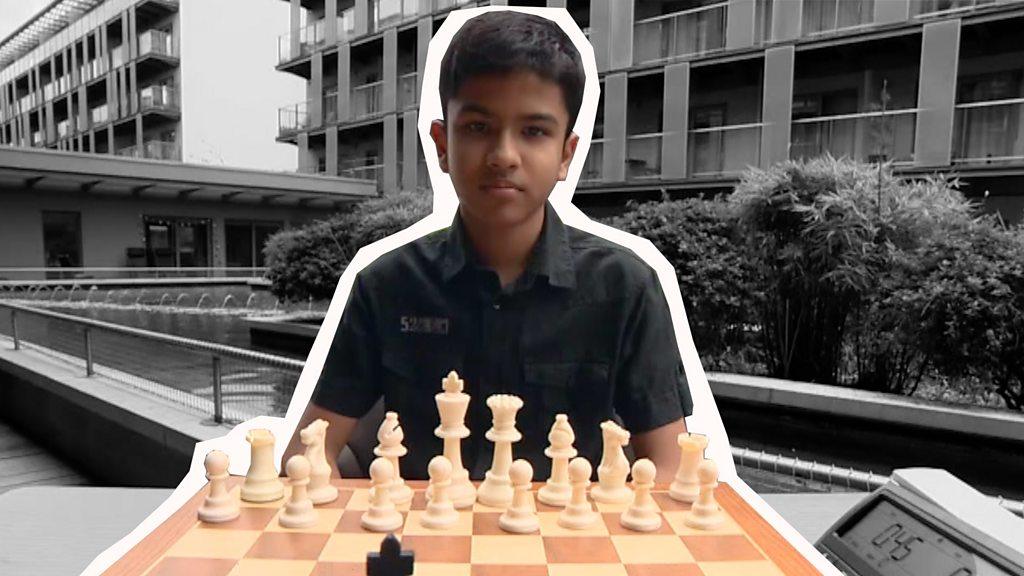
- Published5 December 2019
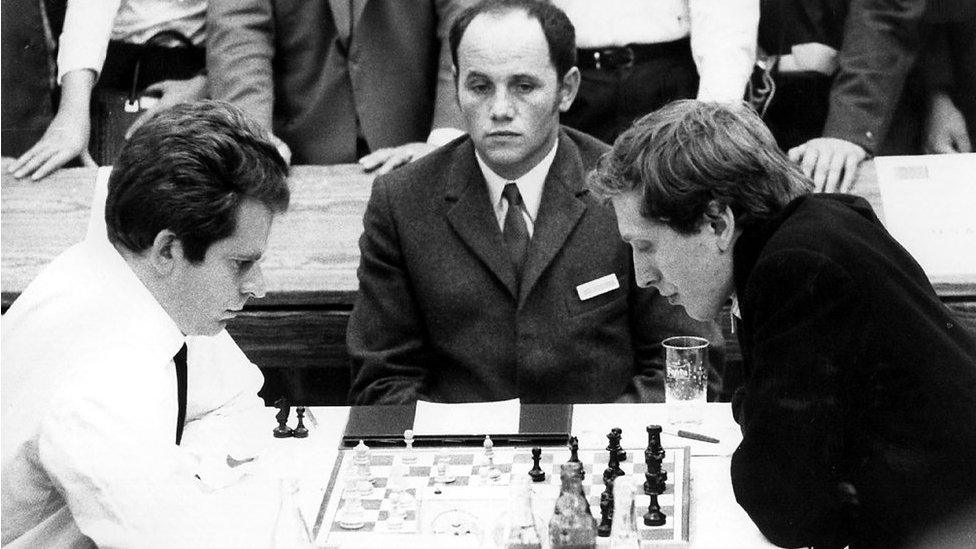
- Published18 November 2020
